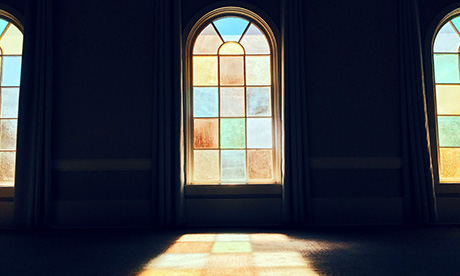The generation born in the two decades after World War II has long touted itself as the revolutionary religious demographic that grew up dutifully sitting in the pews before rebelling — as they did in music, politics, art and the bedroom — and freeing American culture from its hidebound superstitions.
OK, boomer.
Examining the data from the General Social Survey, it turns out it’s not the baby boomers who were the last vestige of a highly religious, very Christian era of American history.
Instead, Generation X — born between 1965 and the early ’80s — is the last to come of age and even perpetuate an overwhelmingly Christian and largely devout religious landscape in terms of church attendance and beliefs about God.
The GSS has been asking people about their belief in God since 1988, when the oldest members of Gen X were moving into adulthood.
The Silent Generation, the baby boomers and Generation X show up in its findings as just as likely (if not more) to have a certain belief in God in 2018 compared to 1988.
Share believing in God without doubt. (Right-click and open in new Tab to see full-size image.)
That’s clearly not the case for millennials, who dropped about 10 percentage points in 20 years in reporting their certainty about a supreme being.
It’s still very early to come to any firm conclusions about Generation Z, but there’s ample reason to believe that they are half as likely as Gen X to express a certain belief — leaving millennials as the generation that was the great divide.
That also comes through when looking at a different question about religious belief: How do you compare your current belief in God with what you used to believe about the divine.
Eighty per cent of Gen X say that they have always believed — 14 percentage points higher than millennials and Generation Z.
Which best describes your beliefs about God?
In fact, it may be the case that Generation X has had a more consistent belief in God than the baby boomers have.
This divergence also appears when religiosity is seen through the prism of disaffiliation.
As they moved through adulthood, Gen X represents an interesting trend line: In the late 1980s, only about 11% said that they had no religious affiliation.
That increased to around 20% by the mid-2000s, but it has been largely unmoved since that point.
Millennials, however, have a completely different trajectory.
When the oldest members of that generation moved into adulthood, 22% were nones, and in 2018 the share of millennials who had no affiliation was closer to 33%.
The Share of Each Generation That Is Religiously Unaffiliated
The gap between boomers and Gen X was less than five percentage points in 2018, but between Gen X and millennials it’s more than 13 points.
The gap in religious behaviour among Generation X and millennials is also stark when it comes to church attendance. To compare the two, I calculated the church attendance of each generation when they entered their early 20s through their mid-30s.
This allows for a direct comparison as each generation went through the typical life stages in which young adults marry, have children and gravitate toward faith — or not.
I think it’s entirely fair to say that Generation X represents the last generation raised with traditional American religion.
In 1991, when the oldest Gen Xers were in their mid-20s, less than 15% said that they never attended church.
During the same period for millennials, the share who never went to church was nearly 30%. In fact, there’s a consistent 10 to 15 percentage-point gap in the never attenders when comparing these two generations.
Religious Attendance Over Time
It’s worth pointing out, however, that the share of each generation that attends church weekly is very similar; the change seems to have come among those millennials who once occupied the middle of the attendance spectrum who now say they never go to church.
As I wrote in my book, “The Nones: Where They Came From, Who They Are, and Where They Are Going,” the early 1990s was an inflection point for American religion.
Between the early 1970s and 1990s, the share of Americans who had no religious affiliation had only risen two points. But from that point forward, the nones would grow by a percentage point or two nearly every year through the following three decades.
For the oldest members of Gen X, this meteoric rise hit after many of them had moved into young adulthood and didn’t seem to lead to a broad secularization of their cohort.
By the time millennials came of age, though, the wave of secularism was washing across the United States. They walked away from religion in ways that prior generations never considered.
I think it’s entirely fair to say that Generation X represents the last generation raised with traditional American religion.
- Ryan Burge is an author at Religion News Service.
- First published by RNS. Republished with permission.
